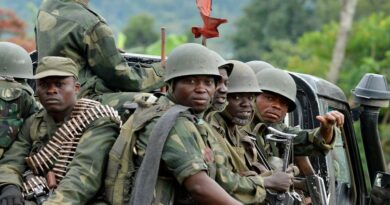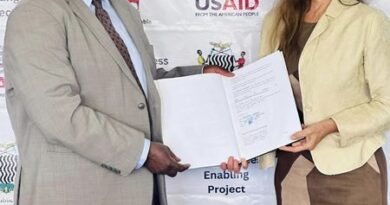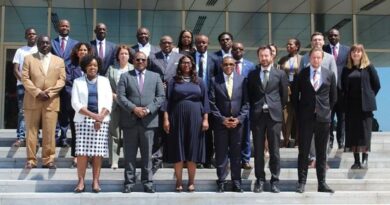Iran’s President Missing After Helicopter Crash in Foggy Mountains
A helicopter carrying Iranian President Ebrahim Raisi, along with the country’s foreign minister and other officials, likely crashed in the mountainous northwest region of Iran on Sunday, triggering a large-scale rescue operation in a fog-covered forest area. The public has been urged to pray for their safe return.
As dawn broke on Monday, President Raisi and the other passengers remained missing over 12 hours after the suspected crash. Turkish drone footage indicated the helicopter went down in the mountains, prompting rescuers to rush to the scene.
This incident occurs amidst heightened tensions in Iran, following an unprecedented drone-and-missile attack on Israel last month and the country’s ongoing uranium enrichment close to weapons-grade levels. Additionally, Iran has faced persistent mass protests over economic struggles and women’s rights, exacerbating the sensitivity of the current situation.
State TV initially reported the helicopter experienced a “hard landing” near Jolfa, a city on the Azerbaijan border, approximately 600 kilometers (375 miles) northwest of Tehran. However, later reports suggested the crash occurred near the village of Uzi, highlighting the contradictory nature of the details provided.
Iran’s Foreign Minister Hossein Amirabdollahian, the governor of East Azerbaijan province, and other officials were also on board. Conflicting reports from local officials described the incident variously as a “crash,” “hard landing,” or “incident.” The state-run IRNA news agency did not provide immediate information on Raisi’s condition.
Turkish authorities released drone footage early Monday showing a fire in the wilderness, suspected to be the wreckage of the helicopter. The fire was located approximately 20 kilometers (12 miles) south of the Azerbaijan-Iranian border on a steep mountain.
Hard-liners in Iran have urged the public to pray for President Raisi. State TV showed hundreds of people praying at holy sites across the country, including the Imam Reza Shrine in Mashhad. Images of men kneeling in the streets of Tehran, visibly emotional, were broadcasted, with many expressing hopes for Raisi’s safe return.
Interior Minister Ahmad Vahidi confirmed that poor weather conditions, including fog and heavy rain, were hampering rescue efforts. Rescuers could be seen navigating the difficult terrain in foggy and misty conditions.
Emergency services spokesman Babak Yektaparast mentioned that a rescue helicopter attempted to reach the crash site but was unable to land due to heavy mist. Turkey’s defense ministry announced it was preparing to send a helicopter equipped with night vision capabilities to aid in the search.
Government spokesman Ali Bahadori Jahromi acknowledged the complexity of the rescue operation, emphasizing the need for patience, prayer, and trust in relief efforts. Supreme Leader Ayatollah Ali Khamenei also urged the public to pray for Raisi’s safe return, while assuring that government operations would continue as usual.
Under the Iranian constitution, if the president dies, the first vice president, with the Supreme Leader’s assent, takes over, and a new presidential election must be called within 50 days. Currently, First Vice President Mohammad Mokhber has been handling Raisi’s duties and receiving calls from officials and foreign governments.
Raisi, 63, viewed as a protégé of Khamenei, has been a significant figure in Iran’s hard-line political landscape. His administration has been marked by significant internal and external challenges, including Iran’s contentious nuclear program and its involvement in regional conflicts.
The disappearance of President Ebrahim Raisi in a helicopter crash has plunged Iran into uncertainty. The ongoing rescue efforts, hampered by adverse weather conditions, are being closely watched both domestically and internationally. As the nation prays for the safe return of its president, the implications of this incident could have far-reaching consequences for Iran’s political landscape and its relations with the wider world.
Source: AP News



